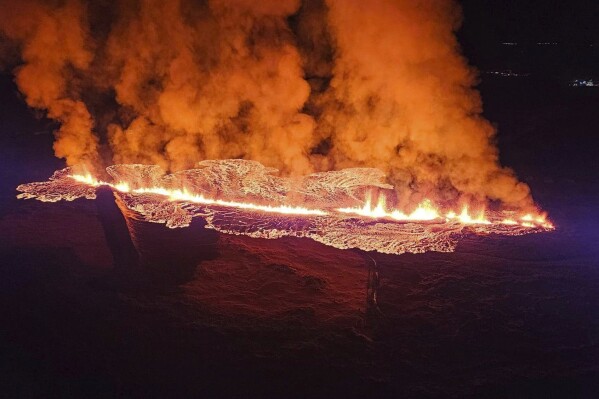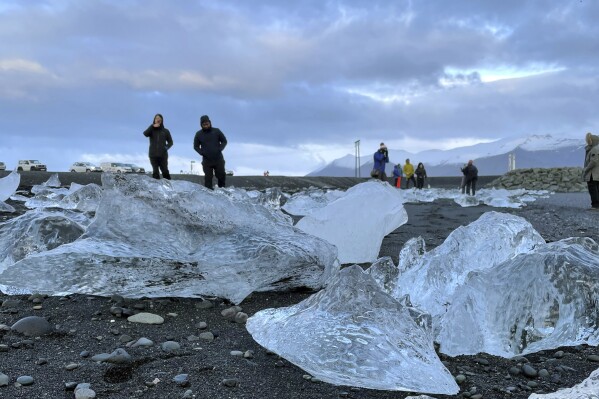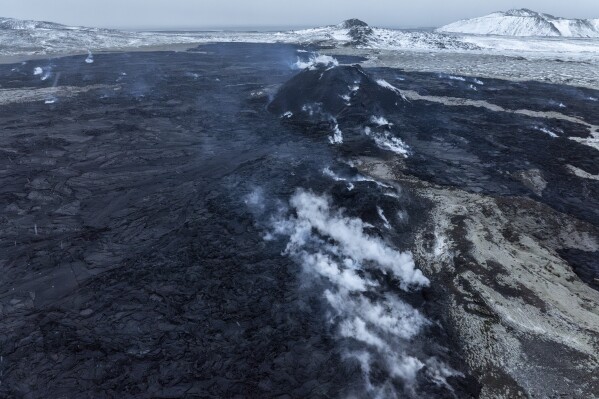President says Iceland faces ‘daunting’ period after lava from volcano destroys homes in Grindavik
REYKJAVIK, Iceland (AP) — Iceland’s president said the country is battling “tremendous forces of nature,” after molten lava from a volcano in the island’s southwest consumed several houses in the evacuated town of Grindavik.
President Gudni Th. Johannesson said in a televised address late Sunday that “a daunting period of upheaval has begun on the Reykjanes peninsula,” where a long-dormant volcanic system has awakened.
A volcano on the peninsula erupted for the second time in less than a month on Sunday morning. Authorities had ordered residents to leave the fishing town of Grindavik hours earlier as a swarm of small earthquakes indicated an imminent eruption.
Geophysicist Magnus Tumi Gudmundsson said Monday morning that the eruption had “decreased considerably” overnight, but that it was impossible to say when it would end.



Grindavik, a town of 3,800 people about 50 kilometers (30 miles) southwest of the capital, Reykjavik, was previously evacuated in November when the Svartsengi volcanic system awakened after almost 800 years.
The volcano eventually erupted on Dec. 18, sending lava flowing away from Grindavik. Residents were allowed to return to their homes on Dec. 22.
Since then, emergency workers have been building defensive walls that have stopped much of the lava flow from the new eruption short of the town.
No one has been killed in the eruptions, but a workman is missing after reportedly falling into a crack opened by the volcano.
“We don’t yet know how this eruption will unfold, but we must still take those actions that are within our power,” the president said.
“We continue to hope for as good an outcome as possible, in the face of these tremendous forces of nature,” he added. “We will carry on with our responsibilities and we will continue to stand together.”
Iceland, which sits above a volcanic hot spot in the North Atlantic, averages one eruption every four to five years. The most disruptive in recent times was the 2010 eruption of the Eyjafjallajokull volcano, which spewed clouds of ash into the atmosphere and disrupted trans-Atlantic air travel for months.
The latest eruption isn’t expected to release large amounts of ash into the air. Operations at Keflavík Airport are continuing as normal, said Gudjon Helgason, spokesman for airport operator Isavia.
Disclaimer: The copyright of this article belongs to the original author. Reposting this article is solely for the purpose of information dissemination and does not constitute any investment advice. If there is any infringement, please contact us immediately. We will make corrections or deletions as necessary. Thank you.


